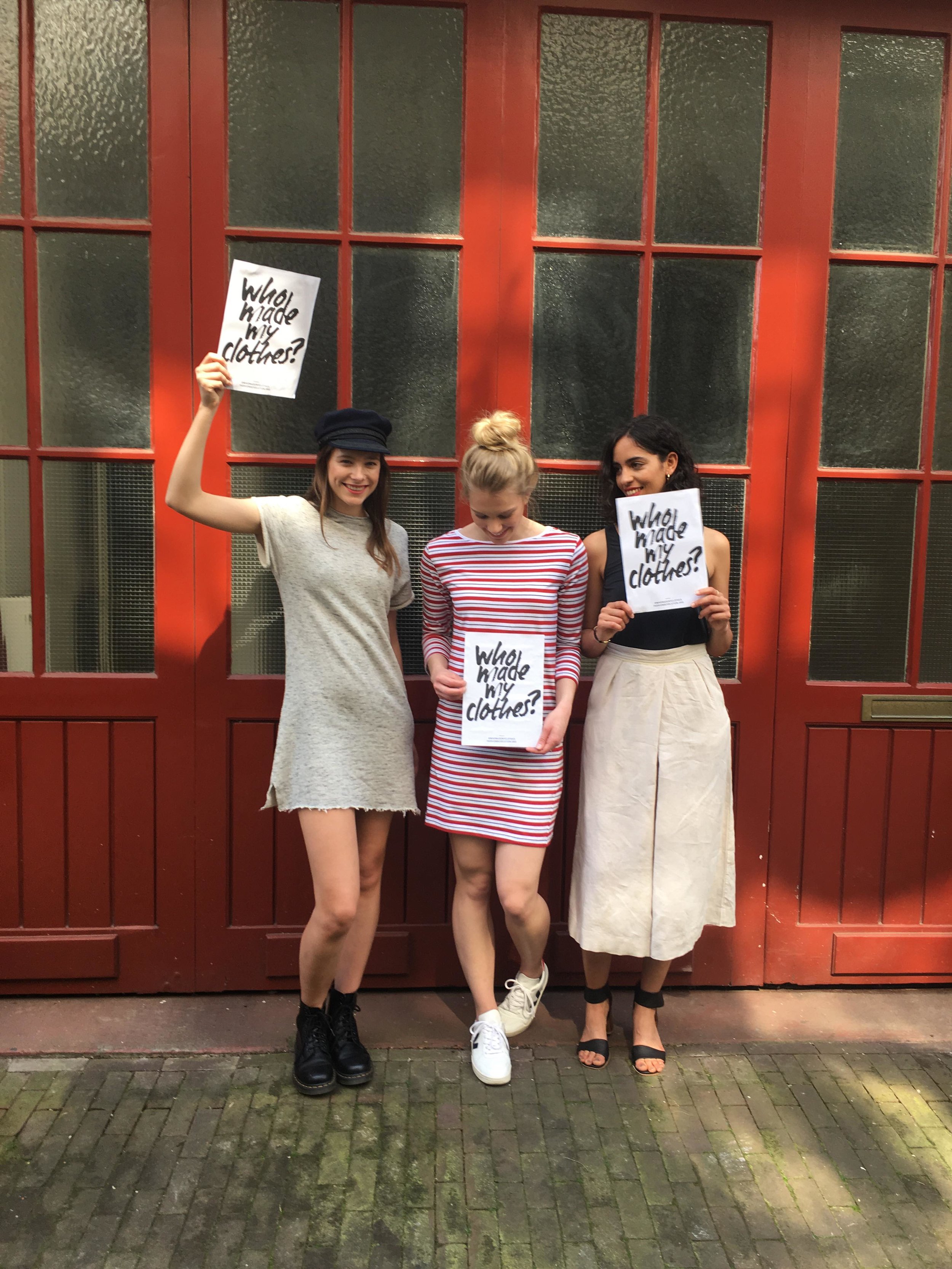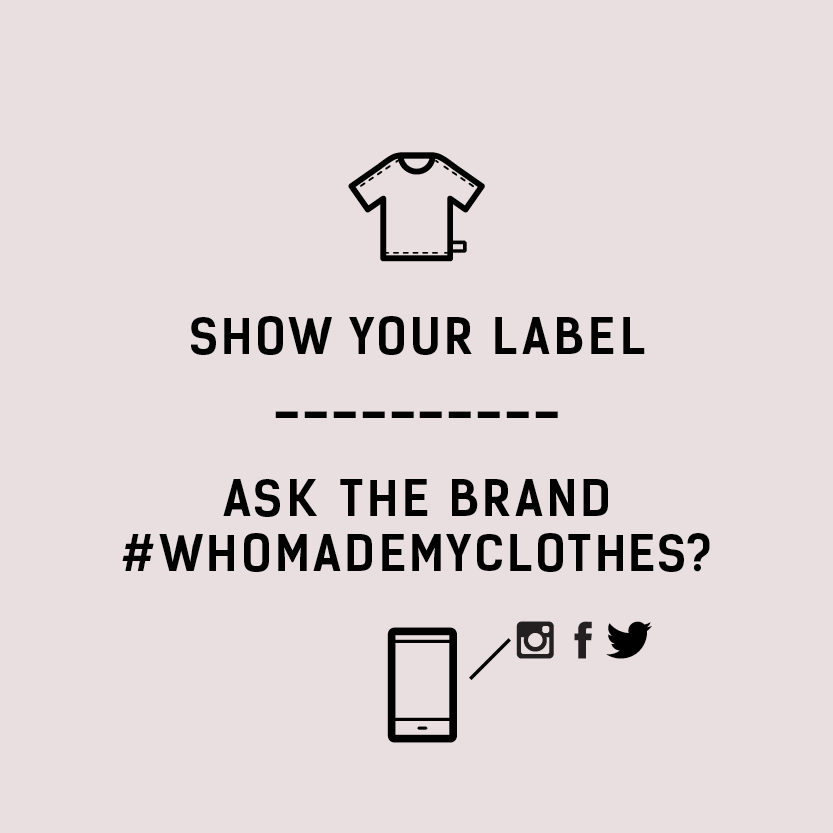Convo No. 4
thegreenlabels.com is a new kind of webshop, raising the bar for value-based shopping while spreading the fashion revolution and making the world a better place. It was founded by Claudia Angeli in 2018. We sat down for a chat about her sustainable journey, sustainable fashion and of course her webshop!
Claudia Angeli is founder of thegreenlabels.com (TGL), and Digital Marketing Manager at O My Bag, Amsterdam.
What is your personal relationship to sustainability & fashion?
A bit of a love and hate story. Since very young I’ve always enjoyed fashion and shopping, then when then I finished my bachelor’s in civil engineering, I was like this is not for me. So I applied to do a master’s in fashion management. I got in the second round of interviews and was then already confronted with all the things I don’t like about ‘snobby’ fashion. And as you can guess I didn’t go through with that degree. I like fashion to be free, cool, stylish. I’m really here to change something.
I’m in-love with the fresh geometric colour-blocking look you’ve gone for! Where does it come from?
For me it’s about re-freshing the image of sustainable fashion, to show that it can be fresh, upcoming and exciting! It definitely also comes from the great designer that helped me out, and who was able to show my personality through colour, patterns and prints.
What led you to start thegreenlabels.com (TGL)?
I have the skills, I’m educated and I really want to improve things. And in fashion there is a lot to be done. As a shopper I always missed the one-stop shop where I can find all the labels I like. Of course, as you investigate you find other shops out there, but I try to do something different through making it easier for people to shop according to their own values.
I come from a family background which is perhaps a bit environmentalist, but it wasn’t till I lived in China for a year that I realised we need to do something and quickly. I went through a period of changing my consumer habits, not buying new clothes, always reading clothing labels and so on. It made fashion and clothing a negative thing. It was only later when I had my eyes opened to sustainable fashion that fashion became something positive again.
Right now I’m working on TGL together with Lucia Luce, who is responsible for operations and content. In the future this is something I want to be doing full time, but as for now we first have to work towards it being a sustainable (economically) business in the long term. At my fulltime job at O My Bag I have a lot of freedom and it’s amazing that I get to do both these great things.
Did you have something or someone that inspired you along the way?
When I got into sustainable fashion I discovered strong labels, like Reformation, I love their clothes and the way they market themselves. Also locally here in Amsterdam, Charlie + Mary, they started in 2009 when there was nothing at all, and they still went for it.
What is sustainability to you and what does it mean for TGL?
For me it’s the three pillars: environmental, social and economic. The first two are quite apparent through the shop but also economically it’s important to be able to grow as a company, be competitive, and also be in a position to hire great people.
Fair working conditions is a prerequisite for all the lables we feature, that’s the base line, then we have other environmental criteria on top of that. We have certain requirements for labels to become a part of our selection, and if they’re not met it's a no-go. Some of the questions we ask is where the seed, yarn, fabric and garment originate from, basically the full circle. This is also clearly illustrated on the page of each product.
The full circle
Besides that you can shop by four value-categories: waste reduction, local, vegan and clean process.
In ‘waste reduction’ you find labels using dead stock and post-consumer waste to make clothing. A great example is our bikinis from the Australian label Lemon Spicy, they are made out of recycled fibres some of which are old fishing nets. Another nice one is Naomi Rachèl Timan, a label by a Dutch girl with the same name, making bags out of pieces of leather she sources in the streets. With ‘local’ we aim to support businesses that produce locally and as a result create social and economic wealth in their local community. As the Danish label By Signe. Signe Rødbro started her own factory to create local wealth in no-man’s land where everyone had left factories behind.
In the ‘vegan’ category you find labels where no animals have been harmed or used in the making of the garments. ‘Clean process’ is a bit more of a bucket but a way for us to still include labels using organic material, or labels with factories that try to make a difference through their water usage. I don’t think there is one right way to go about this, but this can be one of them.
Through TGL you also started an amazing interview series called ‘Meet our fair fashion pioneers’. Why is this an important thing for you to feature?
Well it’s actually a funny story, but also proof that when you start something interesting people join you on the way. At the beginning I started the webshop only as a landing page communicating what the concept would be. A media student reached out to me and she is now responsible for the blog section. So far we’ve done two, one with sustainable fashion blogger Sara Dubbeldam, and another one with Charlotte van Waes, co-founder of the fashion store and agency Charlie+Mary. There’s more to come!
TGL models showing their support of the Fashion Revolution #whomademyclothes campaign
What advice would you give to people who want to contribute to making fashion more sustainable?
Transformation always starts with yourself, so look at yourself. Also look at how you can inspire other people, show them that things can be done differently. And then I would say, surround yourself with other likeminded people, like I did at the Impact Hub Amsterdam for example, a community of entrepreneurs working for a sustainable future. There’s many more initiatives like this one out there, or be a part of the Fashion Revolution movement! Don’t think too much about the ten steps you need to take but rather the next two. Things change, so stay flexible and think short- to medium term and avoid unnecessary stress.
thegreenlabels.com is a great example of how we as consumers have the power to change the fashion industry. Do your research, know your labels and know who you're buying from. Fashion Revolution also offers resources for reaching out to policymakers & to fashion labels to ask #whomademyclothes.










